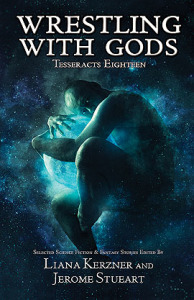One of the challenges of writing short stories for publication–other than, you know, the writing part–is keeping track of calls for submission.
 Many ongoing magazines don’t accept stories year-round. They have submission periods, during which writers are invited to submit stories. When the window closes, writers have to wait for the next submission periods. Magazines do this to give their editors time to catch up with submissions, to ensure their queue of stories to review remains at a manageable length.
Many ongoing magazines don’t accept stories year-round. They have submission periods, during which writers are invited to submit stories. When the window closes, writers have to wait for the next submission periods. Magazines do this to give their editors time to catch up with submissions, to ensure their queue of stories to review remains at a manageable length.
Anthologies have publication dates, and the editors need to factor in time for edits, typesetting, printing, and everything else involved in preparing a book for sale, whether in print or in e-book format. This means that anthology submissions also have deadlines, and the editors will choose the best stories from the pool they receive before the deadline.
Respect deadlines. Begging editors for more time is a waste of their time, and unless you know the editor well, they probably won’t give you an extension. After all, they have deadlines of their own to meet. Turn your work in on time, or else wait for the next submission window, or consider another market.
I’ve found a wall calendar to be very helpful in giving me a clear visual picture that will tell me at a glance what deadlines are coming up for what markets and how much time I have to finish the projects. Online calendars don’t work well for me because I don’t think to look at them, and pop-ups serve only to annoy me when I’m trying to focus on something else (so I dismiss them, then out of sight, out of mind….) A big calendar right there on my office wall catches my eye every time I enter the room, but doesn’t interrupt me while I’m doing other things.
But…damage control. What do you do when those deadlines are too close?
When you haven’t signed a contract, you’ve got the freedom of choosing to miss a deadline. It’s disappointing not to submit for a project you were excited about, definitely, but you won’t be held legally responsible for it, either.
I’ve learned from experience that I can’t do my best work when I’m under the gun. Some people can; I’m not one of them. I need at least a week for edits, because my stories are always much stronger after the fifth or sixth revision, and most of those ideas for revisions come to me at night, or in the shower. If I don’t have time to think on the story, I can’t “brew” those revisions.
Knowing this, I know that if I have less than a week to submit a story, it’s probably not worth my time to race for the deadline. I’m unlikely to create work I’m satisfied with, meaning that time, and effort, would be better spent on a project that will be my best work and that is more likely to pay me for the time I spend on it.
Also, if I have a week, but most of it is already devoted to other commitments (like travel, where I can’t access a computer, or contractual edits for a novella, in which I am obligated by the contract to return my edits in a certain number of days) that also counts as “less than a week” of actual working time to focus on the story in question.
It’s best to find a system that works for you so deadlines don’t take you by surprise. Eventually, though, one will. If you’re under contract, you’ve got little choice but to gun it (if you can’t make it, for example, you’ve been hospitalized, have a family member or friend contact your editor as soon as possible to let them know the situation). If you’re not, then self-awareness is key. Some writers do great work in bursts, sprinting for deadlines; some don’t. With practice, you’ll know how long you typically take to produce a piece you’re happy with. If you don’t have time to do work to your usual standard, you might be better served spending your time and energy on a different project and letting this one go.



